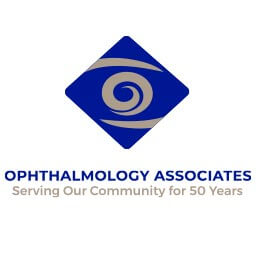Cataract Surgery Leads to Better Driving!
Posted by: Ophthalmology Associates of Fort Worth in Uncategorized

Have you heard? Cataract surgery leads to better driving!
Cataract surgery can be life-changing, allowing patients with poor vision to finally see bright colors, regain their night vision, and even reduce their dependence on glasses.
But can these improvements be measured?
In Australia, a group of researchers sought to quantify how much cataract surgery can improve a person’s ability to drive a car. In the study, they tested the driving performance of 44 patients before and after cataract surgery. Patients completed a simulated driving test designed to measure how well they deal with adjusted speed limits, traffic densities, uncontrolled intersections, and pedestrian crossings. The researchers tested participants before cataract surgery, after receiving cataract surgery in the first eye, and after receiving cataract surgery in their second eye. (Cataract surgery is typically performed in one eye at a time, with the second eye receiving surgery at a later date.)
After the first surgery, near misses and crashes decreased by 35 percent. After the second surgery, they decreased by 48 percent.
“These results highlight the importance of timely cataract surgery in maintaining safety and continued mobility and independence in older adult drivers,” said Jonathon Ng, MD, the head researcher.
This is far from the first study to examine how cataracts affect driving. In 1999, a study found that drivers with cataracts were 2.5 times more likely to have a history of at-fault crash involvement. Other studies have proven that cataracts can affect drivers visibility making it difficult to see road signs, lane markers and even other motorists, pedestrians and bicyclists on the road.
When should you receive cataract surgery?
To determine whether it’s time for cataract surgery, the American Academy of Ophthalmology recommends asking yourself the following questions:
- Can you see to safely do your job and to drive?
- Do you have problems reading or watching TV?
- Is it difficult to cook, shop, climb stairs, or take medications?
- Do vision problems affect your independence?
- Do bright lights make it harder to see?
If you have any concerns about your vision – or your ability to operate a motor vehicle – talk with your doctor. They will know best whether to schedule you for cataract surgery.
Cataract surgery is very common, and the associated risks are minimal. At Ophthalmology Associates, we strive to provide our patients with excellent results. For more information about our ophthalmic services, contact us today!
